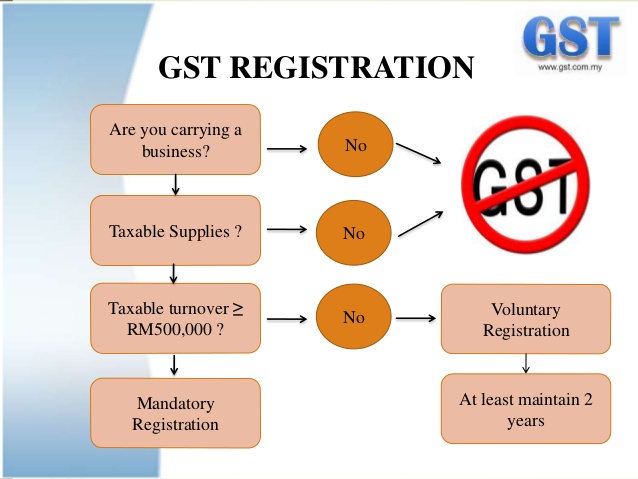Cost effective Alternatives for the Best GST Registration Services in Singapore
Cost effective Alternatives for the Best GST Registration Services in Singapore
Blog Article
From Start to Finish: The Ultimate Roadmap to GST Registration for Companies Seeking Financial Security
Navigating the complexities of Product and Services Tax (GST) registration is a crucial action for organizations striving for monetary security. Damaging down the roadmap right into workable actions can simplify the registration trip for businesses looking to improve their monetary standing.
Recognizing GST Fundamentals
Looking into the fundamental principles of Product and Services Tax Obligation (GST) is important for acquiring an extensive understanding of its ramifications on services and the economic climate. GST is a value-added tax levied on most products and services for residential intake. It has changed several indirect taxes that existed in the pre-GST period, streamlining the tax framework and improving convenience of doing business in India. Under the GST system, both services and goods are strained at a details rate, which is established based upon their classification. Companies are needed to sign up for GST if their yearly turn over surpasses the threshold restriction established by the government. Input Tax Obligation Credit Rating (ITC) is a considerable attribute of GST, enabling businesses to declare credit rating for taxes paid on inputs, minimizing the overall tax obligation problem. Understanding the basics of GST is vital for services to adhere to tax regulations, handle their funds successfully, and contribute to the nation's financial growth by taking part in a clear tax system.
Eligibility Standards for Enrollment
As of the current guidelines, the threshold limit for GST registration is a yearly aggregate turn over of 40 lakhs for organizations running within a state, other than for special group states where the limitation is 20 lakhs. Additionally, specific companies are called for to sign up for GST irrespective of their turnover, such as interstate providers, casual taxable individuals, and businesses responsible to pay tax obligation under the reverse fee mechanism. It is essential for businesses to completely examine their turnover and deal kinds to determine their GST registration obligations precisely.
Files Required for Enrollment
Having satisfied the eligibility criteria for GST enrollment, organizations need to now ensure they have the requisite documents in place to wage the registration procedure effectively. The papers required for GST registration commonly consist of evidence of service constitution, such as partnership act, enrollment certification, or incorporation certificate for various types of organizations. Additionally, services require to supply documents establishing the major business, such as a rental arrangement or electrical energy costs. PAN card of the company, along with the identity and other address proof of promoters/partners/directors, are necessary for confirmation functions. Checking account statements, together with canceled cheques or a copy of the bank passbook, are required to validate the economic information supplied throughout enrollment. Businesses need to have digital trademarks prepared for the authorized notary. Guaranteeing all these papers are arranged and conveniently offered will expedite the GST enrollment process, making it possible for services to adhere to tax guidelines check my reference perfectly.
Step-by-Step Registration Process
Commencing the GST enrollment process entails a collection of organized steps to guarantee a smooth and certified registration for organizations. The primary step is to check out the GST website and complete the registration kind with accurate details of business entity. Following this, the applicant obtains a Momentary Recommendation Number (TRN) which is made use of to resume the application process if it's not completed in one go.
Following, all needed files as per the list offered by the GST portal requirement to be uploaded. These files generally include proof of company address, identification and registration proofs of marketers, monetary statements, and organization entity's frying pan card.

Post-Registration Compliance Standards

Verdict
Finally, companies seeking economic security must recognize the fundamentals of GST, meet qualification requirements, gather necessary records, adhere to the step-by-step registration process, and adhere to post-registration standards - Best GST registration services in Singapore. internet By adhering to these actions, businesses can guarantee conformity with tax obligation guidelines and maintain financial security in the long run
Additionally, certain organizations are needed to register for GST regardless of their turnover, such as interstate providers, laid-back taxed persons, and organizations accountable to pay tax under the reverse cost mechanism.Having actually fulfilled the qualification criteria for GST enrollment, businesses have to now ensure they have the requisite papers in area to proceed with the registration process efficiently. The files required for GST enrollment commonly include evidence of company constitution, such as partnership deed, registration certification, or consolidation certificate for various kinds of organizations. Furthermore, organizations need to offer documents developing the principal place of company, such as a rental agreement or electrical power expense.Starting the GST enrollment procedure involves a series of structured steps to guarantee a seamless and compliant enrollment for organizations.
Report this page